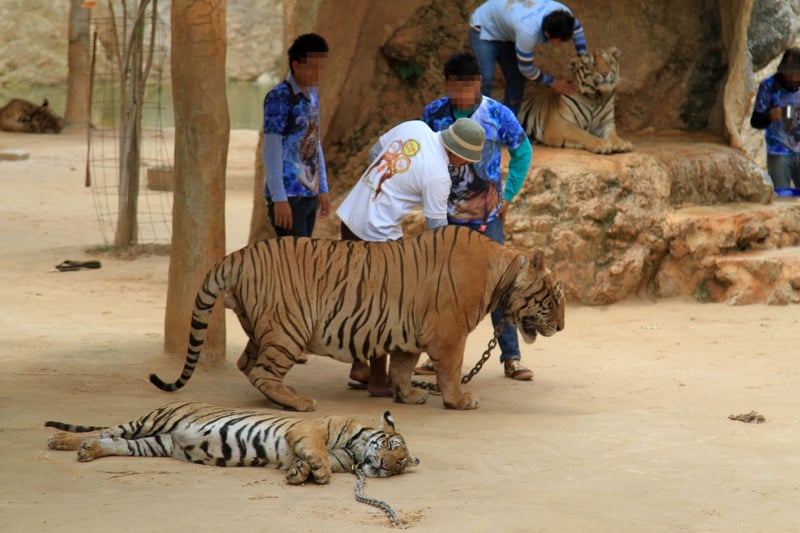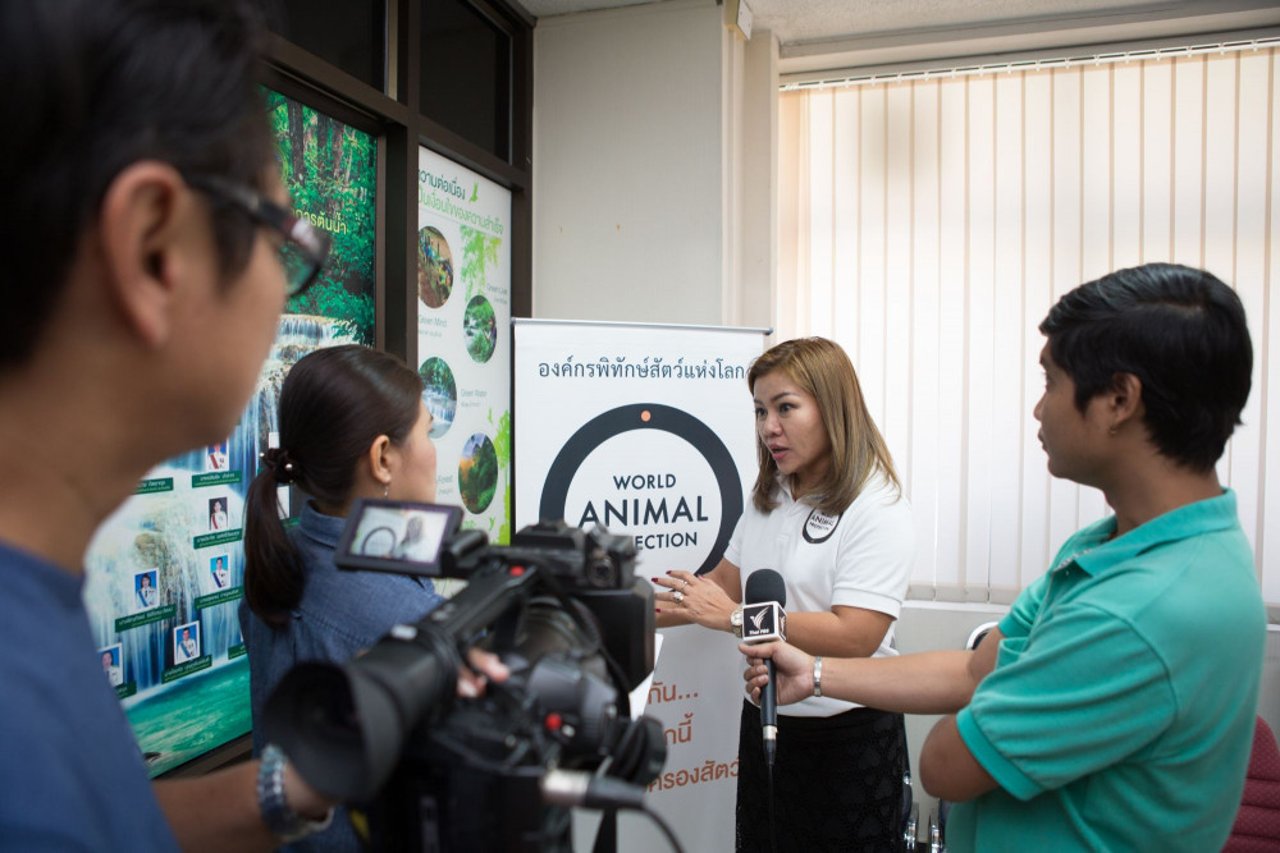
Presented to authorities: Petition to protect tigers, with more than 212,000 signatures
News
Our petition urging Thailand’s Department of National Parks, Wildlife and Plant Conservation (DNP) to put a stop to a ‘new Tiger Temple’ tourist venue, has been handed to officials. We’re grateful to the thousands of supporters joining us to help protect tigers
The petition was launched after our investigation revealed that the company behind the controversial, now-defunct Tiger Temple tourist venue, has changed its name to Golden Tiger (Thailand) Co. Ltd. and is planning to open a new tiger entertainment attraction.
We handover the petition to representatives at Thailand's Department of National Parks, Wildlife and Plant Conservation (DNP)
We believe this puts these majestic wild animals at serious risk.
Gruesome finds
The infamous Tiger Temple had faced allegations of illegal breeding and trafficking of tigers and their body parts.
It was closed in May 2016, after officers from the DNP raided the venue.
Officers made horrific finds, including dead cubs in freezers, tiger skins, amulets and tiger tooth trinkets.
New site build steaming ahead
We recently released pictures of the new site, where construction is steaming ahead. It is directly beside the former Tiger Temple, in Kanchanaburi, Thailand.
Photos show small, old-fashioned tiger cages being constructed across four hectares of land. We fear that the new wildlife tourist attraction could open by the end of May.
Endless suffering
Golden Tiger (Thailand) Co. Ltd. will need to meet 11 specified conditions to be allowed to open. But these conditions don’t go far enough, and fail to ban breeding or tourist interactions with tigers at the proposed new venue, both of which can cause endless suffering.
Dr. Jan Schmidt-Burbach, our senior wildlife advisor, said:
"History of cruelty to tigers cannot repeat itself again under a different name. We must ensure that this venue does not open. We urge the authorities to listen to the many thousands of people who have petitioned to prevent this senseless plan.
"We cannot fall back to the unacceptable scenario of cubs being bred for profit, separated from their mothers, being kept small enclosures, having limited veterinary care, and suffering stress and injury, all of which cause extreme suffering."
We talk to staff at Thailand's Department of National Parks, Wildlife and Plant Conservation (DNP) about the petition
Wildlife. Not entertainers
We recently published a study on tigers used for entertainment in Thailand. It showed a 33% increase in the number of tigers kept at tourist entertainment facilities over a five-year period.
The main welfare concerns witnessed at the venues by investigators include:
- Tiger cubs cruelly separated from their mothers, two to three weeks after they are born.
- Young cubs used as photo props with tourists; mishandled hundreds of times a day, which can lead to stress and injury.
- Tigers being punished to stop aggressive, unwanted behavior. One staff member told our researchers that starvation is used to punish the tigers when they make a ‘mistake’.
- Most tigers were housed in small, concrete cages or barren enclosures with limited access to fresh water. Fifty percent of the tigers we observed were in cages with less that 20sqm per animal, a far cry from the 16-32km they would roam in a single night in the wild.
- One in ten (12%) of the tigers we observed showed behavioral problems, such as repetitive pacing and biting their tails. These behaviors most commonly occur when animals feel they cannot cope with stressful environments or situations.
Find out more about our Wildlife. Not entertainers campaign.
Please keep an eye out for updates on the progress of this petition, plus other ways you can move the world to protect animals, by signing up for updates.
History of cruelty to tigers cannot repeat itself again under a different name - Dr. Jan Schmidt-Burbach, our senior wildlife advisor

